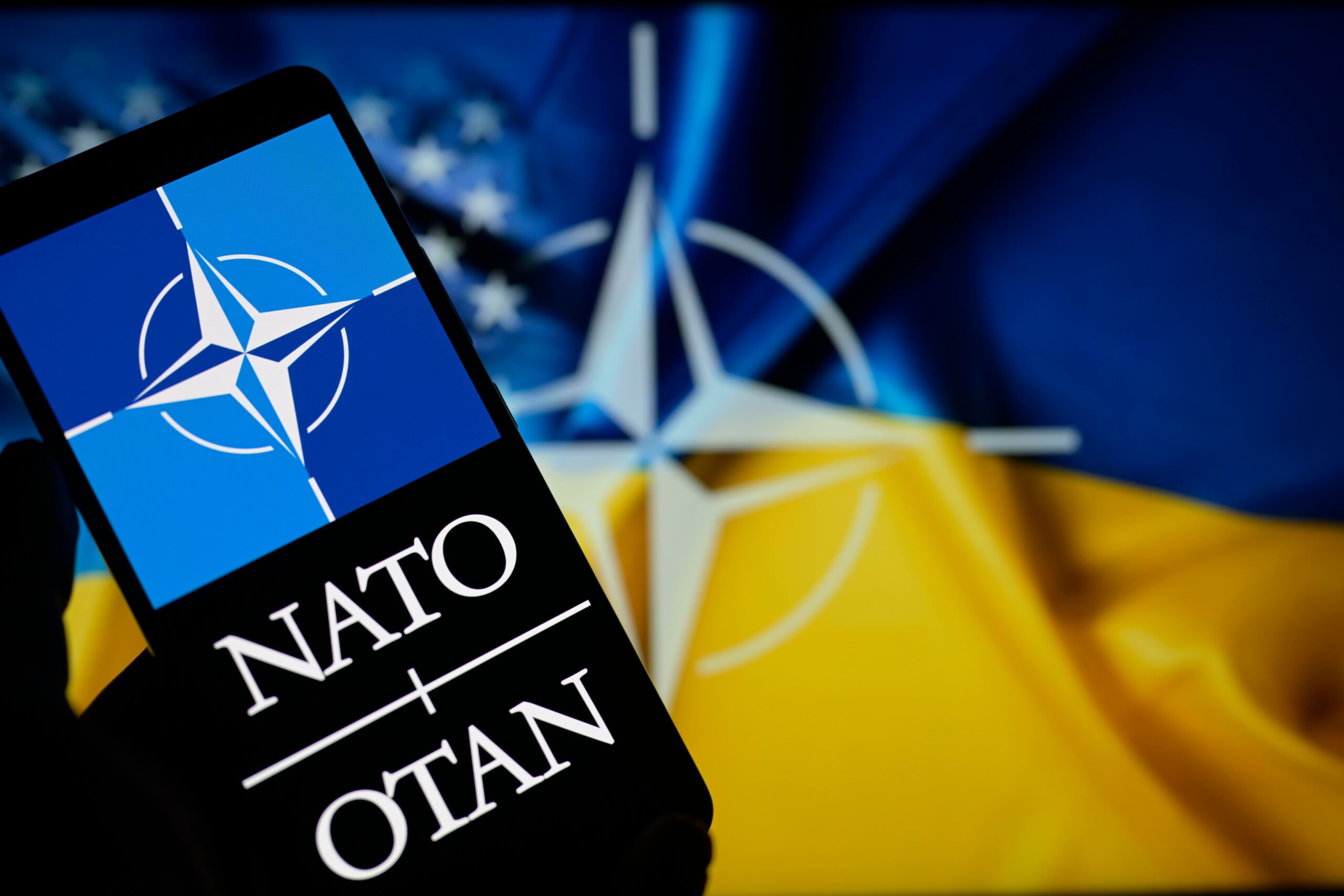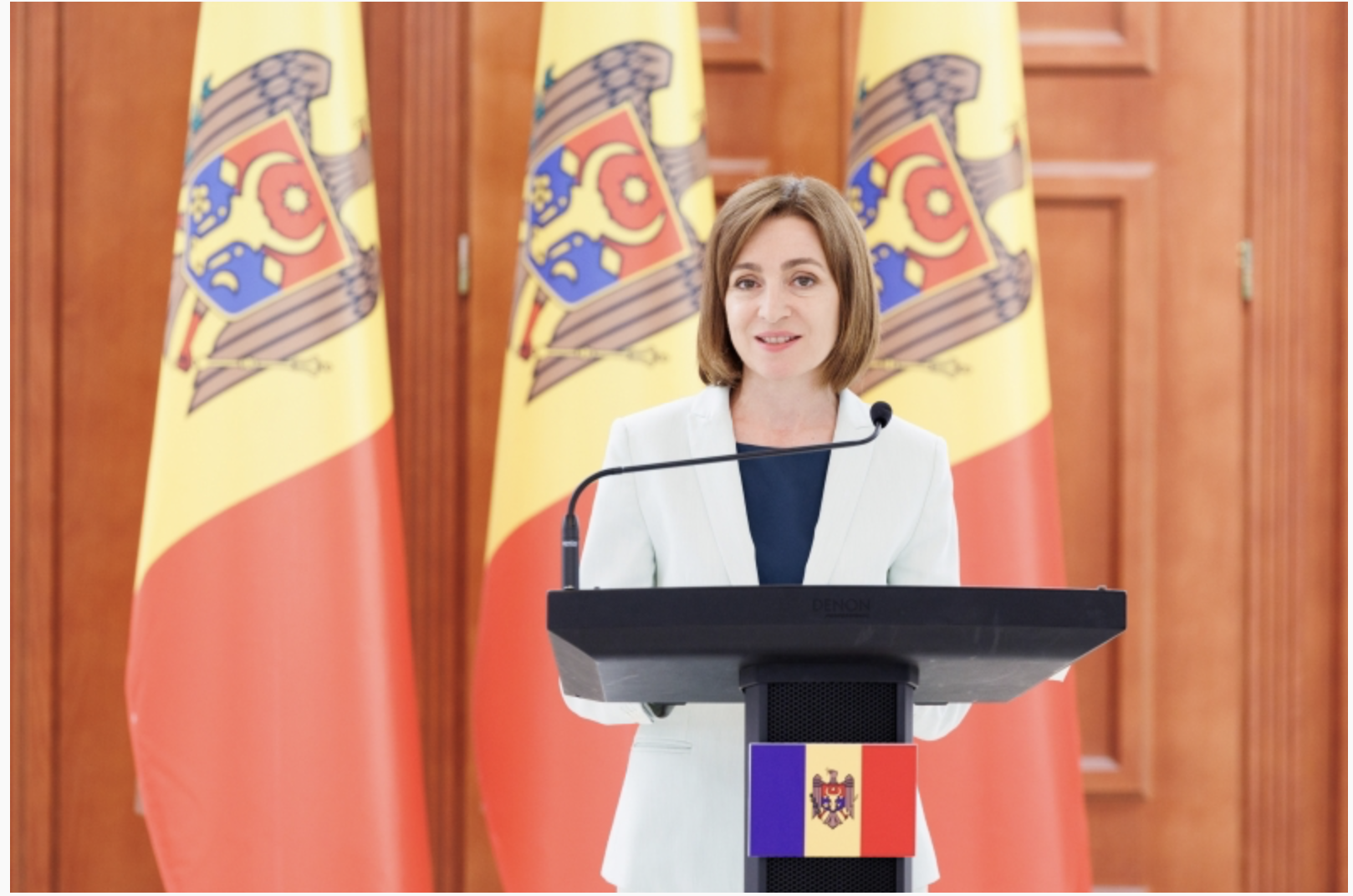IN FOCUS: Ukraine & Moldova Brief
Review of November 2024
Petra Bošková, Anna Gúliková, Sára Gregová
UKRAINE

Photo: Shutterstock.com
Growing potential of Ukrainian membership in NATO as the war continues and the stance of President Zelenskyy
Ukraine has been a close partner of NATO ever since the dissolution of the USSR and the creation of the sovereign state and was supported by NATO in its conflict with Russia after the annexation of Crimea and then the full-scale war. Membership in NATO is one of the Ukrainian greatest aspirations, as it would be irresponsible for Russia to attack one of the members of the organisation, therefore, Ukraine perceives it as the safeguard of its security and independence. The Minister of Foreign Affairs, as well as the President of Ukraine both believe that membership in NATO would prevent more escalation and stop Russia in this war. While the country cannot receive membership during the war state, Ukraine’s officials argue that the invitation to enter should not be considered an escalation.
President Zelenskyy stated that the “hot phase” of the war could be stopped if Ukraine as a whole had been invited to NATO. Then the occupied parts of Ukraine could be negotiated with Russia through diplomatic ways. If the parts that are now under the control of Russia do not get the chance to be included in this process, it would mean that NATO considers them a part of Russia and not sovereign Ukraine. It is believed that a ceasefire from Russia cannot be guaranteed unless there is a defence mechanism that deters the Russian regime from attacking its neighbour.
However, this plan depends mostly on the new US administration, which is going to be led by Donald Trump and how he and his team will want to de-escalate the war. Based on the positions of President Putin, the Kremlin has not yet abandoned the thought of taking control over the entire Ukraine, and therefore, any type of invitation could be taken as a potentially dangerous step from the West. The reports show that NATO is discussing the possibility of Ukraine becoming a member, but it has done so for the past two decades. The chances are that it would be postponed for quite longer than Zelenskyy suggested.
Sources:
- NATO, “Relations with Ukraine”, https://www.nato.int/cps/en/natohq/topics_37750.htm
- John Irish and Tom Balmforth, Reuters, “Ukraine asks NATO for membership invite next week, letter shows”, https://www.reuters.com/world/europe/ukraine-asks-nato-membership-invite-next-week-letter-shows-2024-11-29/
- Paul Adams, BBC, “Zelensky suggests war could end if unoccupied Ukraine comes under NATO”, https://www.bbc.com/news/articles/cn8g8ylvyldo
Biden Authorizes Ukraine to Strike Deep into Russia Amid Escalating Tensions
After months of resistance, President Joe Biden gave Ukraine the green light on November 17 to carry out deep strikes into Russian territory using US-supplied ballistic missiles—a move Kyiv had been urging for months. This significant policy shift comes just weeks before Donald Trump is set to return to the White House on January 20, 2025. The decision, driven in part by North Korea’s involvement in the conflict, is seen as a strategic adjustment that is both overdue and limited in scope. While it may slow Russia’s advance, it is unlikely to significantly alter the balance of power on the battlefield. Ukraine is now on the defensive, losing territory in the eastern Donbas region at a pace not seen since 2022. Russia, meanwhile, has been making rapid territorial gains in Ukraine’s eastern regions, progress not seen in two years. Russian forces are advancing toward Pokrovsk, a critical logistics and transportation hub that serves as a cornerstone of Ukraine’s eastern defence—though the progress comes with significant losses for Russia.
Moscow quickly condemned the US decision as “reckless” and “dangerous,” accusing the Biden administration of escalating the conflict. Vyacheslav Volodin, chairman of the State Duma, warned that Russia could deploy advanced weapons systems against Ukraine if it launches attacks on Russian soil with these long-range missiles. The Army Tactical Missile Systems (ATACMS), known for their precision and range of up to 300 kilometres, represent a serious escalation in the capabilities available to Ukraine.
Adding to the tension, Russian President Vladimir Putin signed a decree on November 18 formalising changes to the country’s nuclear doctrine, initially announced in September. The updated doctrine permits the use of nuclear weapons in response to “massive airstrikes” against Russia or an attack by a non-nuclear state supported by a nuclear-armed power. This latest move underscores the escalating stakes in a conflict that continues to draw in global powers.
Sources:
- BOOT, Max. 2024. „Ukraine’s ATACMS: What Will the U.S. Missiles Mean for the War?“ Council on Foreign Relations. 18.11.2024. Retrieved from: https://www.cfr.org/expert-brief/ukraines-atacms-what-will-us-missiles-mean-war
- ISMAY, John et al. 2024 „What Are ATACMS, the U.S. Missiles That Officials Say Ukraine Fired Into Russia? “ The New York Times. 20.11.2024. Retrieved from:https://www.nytimes.com/article/what-are-atacms-missiles-ukraine-russia.html
- PIETRALUNGA, Cédric. 2024. „US includes long-range ATACMS missiles in arms deliveries to Ukraine“ Le Monde. 25. apríla 2024. Retrieved from: https://www.lemonde.fr/en/international/article/2024/11/19/us-allowing-ukraine-to-use-atacms-missiles-in-russia-is-unlikely-to-change-balance-of-power_6733314_4.html
Possible end of the Russian gas supply through the Transnistria region and problems that come with it
Since late 2023, Moldova’s official government has not imported any of its gas supply from Russia, whereas until the year 2022, all of its gas came from Russia. Due to this diversification, Moldova started to break off its energy dependence, even though Russia still has major control over the Moldovan gas infrastructure. One of the main factors is the self-governing region of Transnistria, which, however, to this day relies fully on the gas imported from Russia. The biggest power plant in Moldova is on the territory, which is under the control of the de-facto government of Transnistria, and it is vital for the region’s economy. Before Moldova transitioned to the West, all of its gas and electrical lines ran through this region, therefore at large all dependent on the eastern supplies.
Based on the deal between Russia and Ukraine, which ends this year, concerning the gas supply from Russian Gazprom, there is a great chance that the region of Transnistria will be cut off. The Energy Minister of Moldova discussed alternate routes with Gazprom if the Ukrainian transit stops, and this decision, if not made by Ukraine, would be at the very last moment. The Chisinau government has been focused on the supplies from its Western partners, however, these talks have been considered as a rare official meeting between Russia and Moldova.
The Transnistria, as it is fully dependent on Russian gas, could not be able to provide a substitute, while other solutions would come to its legitimacy. A possible alternative could be to run the gas through the Turkish pipeline (Turk Stream) and then through Bulgaria and Romania. The stability of the Transnistria region while maintaining the status quo should be secured, but a complete stop of the Russian supply would bring the region to the edge of a humanitarian crisis, as electricity is reliant on the gas supply as well. However, any rise in the price of gas could cause additional financial issues for Chisinau, as the consumers are used to tariffs being strikingly lower than the real cost of gas is. Therefore, the country “would not be able to cover the real cost of gas”.
Sources:
- Daniel F. Runde, Leah Kieff and Thomas Bryja, Center for Strategic & International Studies, “Moldova’s Gas Futures”, https://www.csis.org/analysis/moldovas-gas-futures
- Reuters, “Moldova, Russia hold talks on Transdniestria gas supply amid Ukraine transit uncertainty”, https://www.reuters.com/world/europe/moldova-russia-hold-talks-transdniestria-gas-supply-amid-ukraine-transit-2024-11-25/
- Yurii Doshchatov and Daria Dmytriieva, RBC Ukraine, “Moldova fears humanitarian catastrophe as Russian gas transit ends in 2025”, https://newsukraine.rbc.ua/news/moldova-fears-humanitarian-catastrophe-as-1732700721.html
Moldova’s Government Reshuffle: Sandu Responds to Election Pressure Amid Calls for Reform
Moldova’s government is undergoing changes, with Prime Minister Dorin Recean announcing a modest cabinet reshuffle on November 18. One minister has been reassigned, and two new appointments have been made.
The reshuffle comes after President Maia Sandu won 55% of the vote in this month’s run-off election and a referendum on EU integration passed by a razor-thin margin. Acknowledging the close results, Sandu pledged to address the concerns of voters who supported her opponent, who advocated balancing closer ties with Europe and Moldova’s traditional links to Russia. While Sandu had promised reforms and a cabinet refresh, this reshuffle seems more like a response to criticism than a sweeping overhaul.
Daniela Misail-Nichitin, currently the state secretary for the Ministry of the Interior, will step in as the new minister, replacing Adrian Efros, who resigned without providing specific reasons. Efros, however, highlighted the challenging times he faced during his tenure, including the war in neighbouring Ukraine, an influx of Ukrainian refugees, and other crises testing the country’s stability. Misail-Nichitin is a close ally of Interior Minister Ana Revenco, a key figure in Sandu’s Party of Action and Solidarity.
Ludmila Catlabuga, head of the Association of Milk Producers in Moldova, has been named minister of agriculture and food industry, replacing Vladimir Bolea. Bolea is moving to lead the Ministry of Infrastructure and Regional Development, filling the vacancy left by Andrei Spinu, a key ally of Sandu who resigned earlier this month following public criticism.
Prime Minister Recean expressed confidence in the new appointments, stating, “There’s no time to waste. These changes will help us move forward and meet the needs of our citizens.”
Meanwhile, President Sandu has been addressing broader political issues, meeting with representatives of 18 political parties to discuss allegations of voter bribery. Sandu accused pro-Russian groups of orchestrating a mass vote-buying scheme to undermine her. However, critics argue that deeper reforms to Moldova’s judiciary remain unaddressed despite these efforts.
Sources:
- ERNST, Iulian. 2024. „Moldova’s government replaces three ministers in cosmetic reshuffle“ bne Intellinews. 19.11.2024. Retrieved from: https://www.intellinews.com/moldova-s-government-replaces-three-ministers-in-cosmetic-reshuffle-353944/
- Reuters, 2024. „Moldovan interior minister quits in post-election changes“ Reuters. 19.11.2024. Retrieved form: https://www.reuters.com/world/europe/moldovan-interior-minister-quits-post-election-changes-2024-11-19/


Contact us